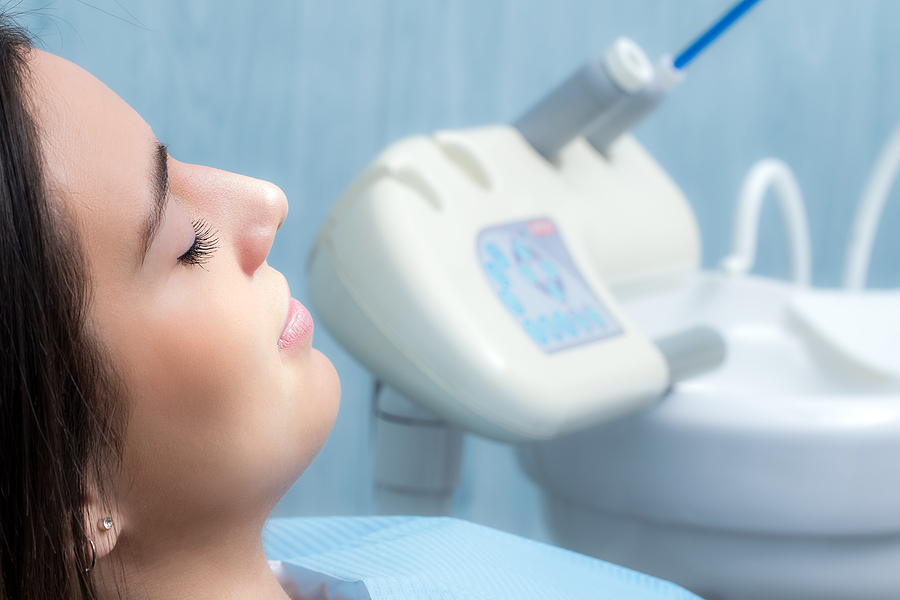Sedation Dentistry

Imagine undergoing a complex dental treatment like a root canal, extraction, or oral surgery. When your treatment is complete, you have no recollection of the time it took, the pain, the noise, or the discomfort you were expecting. We are pleased to offer our patients the option of comfortable, safe, and effective sedation dentistry. Patients who benefit from sedation dentistry have:
- A fear or anxiety of being at the dentist
- A hard time sitting still for long periods of time
- A hard time getting (and staying) numb from anesthetics
Prosthodontic treatment can be necessary for a variety of reasons, including tooth loss due to decay, trauma, or gum disease. It can also be used to correct problems with the bite, such as misalignment or grinding, and to improve the appearance of the teeth and mouth.
One of the most common prosthodontic treatments is the use of dentures, which are removable replacements for missing teeth. Dentures can be partial, replacing only a few missing teeth, or complete, replacing all of the teeth in the upper or lower jaw. Dentures are made from acrylic resin or a combination of acrylic resin and metal and are custom-made to fit the patient’s mouth.
Crowns are another common prosthodontic treatment. A crown is a cap that fits over a damaged or decayed tooth, protecting and strengthening it. Crowns can be made from a variety of materials, including porcelain, ceramic, and gold, and are custom-made to match the shape, size, and color of the patient’s natural teeth.
Bridges are used to replace one or more missing teeth. A bridge is made up of one or more artificial teeth (called pontics) that are held in place by crowns on either side. The crowns are placed on the teeth adjacent to the missing tooth or teeth, and the pontic is attached to them, filling the gap left by the missing teeth.
What is Sedation Dentistry?
Sedation dentistry allows your doctor to provide a variety of dental treatments safely and comfortably for patients who experience anxiety when visiting the dentist. There are several benefits to sedation dentistry, including:
- No memory of undergoing the procedure
- No sense of time while under sedation
- No sense of smell or sound
- No fear or anxiety during treatment
Patients who have undergone a procedure using sedation dentistry will tell you it is a simple, relaxing way to experience dentistry.
I am Nervous About Being Unconscious. What Levels of Sedation are Available to Me?
There is no need to be nervous about having sedation dentistry at our practice. We are licensed by the American Dental Association, and you will find that we are both respectful and professional at all times.
Sedation dentistry is closely regulated by law, and there are three sedative states at which your dentist can administer your treatment: mild sedation, moderate sedation, and deep sedation.
- Mild Sedation — Anxiolysis is the lightest form of sedation dentistry and is often used for patients with mild anxiety, longer procedures, or more complex situations. Mild sedation is usually administered orally. You remain awake or very sleepy throughout the entire procedure and are able to breathe on your own, but you will feel a great sense of relaxation. Patients typically recover from anxiolysis sedation within a few hours after the procedure is complete. Laughing gas is another form of mild to moderate sedation that results in relaxation during treatment.
- Moderate Sedation — Used for patients with moderate dental anxiety and for patients who need longer or more complex procedures, conscious sedation often refers to the use of light IV sedation. With conscious sedation, you will remain awake throughout your procedure, but will be in a deep state of relaxation. It is recommended that patients who receive conscious sedation have a parent, spouse, or friend accompany them to appointments because it can take several hours for the sedative to wear off and driving may be unsafe.
- Deep Sedation — Patients receiving deep sedation go between consciousness and unconsciousness during their dental procedure. Patients often have no recollection of the treatment and are unable to respond to commands even if they are awake at times during the procedure. It is recommended that patients who receive deep sedation have a parent, spouse, or friend accompany them to appointments because it can take several hours for the sedative to wear off and driving may be unsafe.
How Are Sedatives Administered?
- Inhalation — laughing gas, is the most frequently used method for easing mild to moderate anxiety. Recovery is quick so you can resume your normal activities immediately.
- Oral — An extremely common technique for dental sedation is oral sedation. It is easy and does not require the use of needles. You will be given a prescription pill which, taken about an hour before your appointment, will have you fully relaxed by the time you arrive at our office.
If you are missing teeth or are experiencing problems with your bite, a prosthodontist can help restore your smile and improve your oral health. Don’t let missing teeth or bite problems hold you back – consider seeking treatment from a prosthodontist. So, it is always better to consult with a prosthodontist to get the best treatment for your teeth.
You can call our front desk at 703.729.6222 Mon – Fri 9am – 8pm, email us at [email protected] or fill the Contact Form
